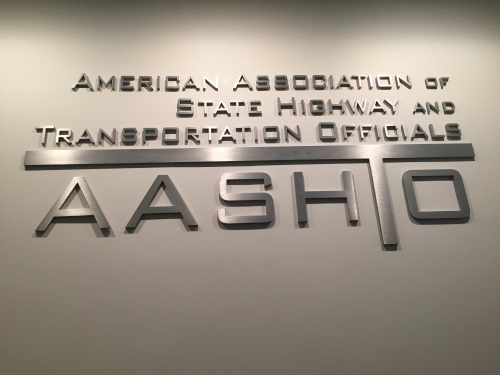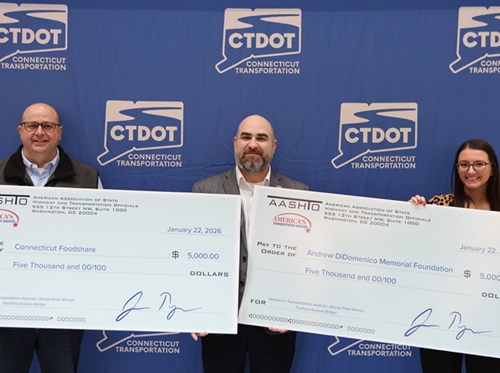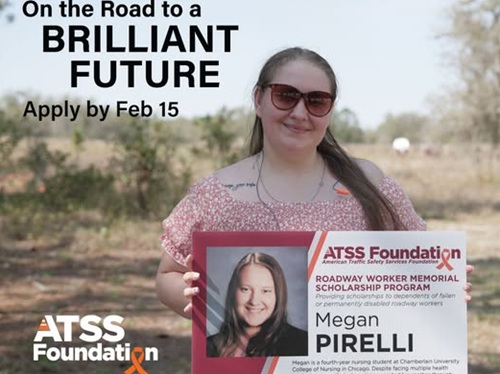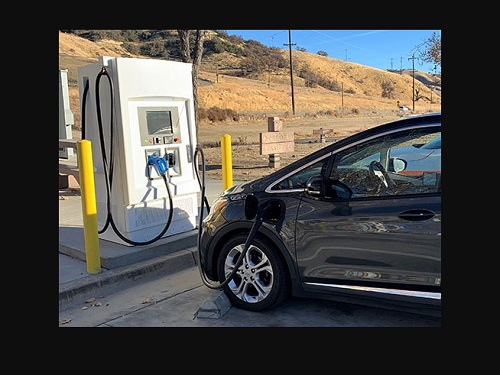The Federal Highway Administration recently issued $521 million in grants to continue building out electric vehicle or EV charging and alternative-fueling infrastructure across 29 states, along with eight federally-recognized Native American tribes and the District of Columbia.
[Above photo by Caltrans]
Roughly $321 million of that grant funding is allocated for 41 “community” projects that expand EV charging infrastructure within localities across the country, while $200 million will go towards 10 “corridor” fast-charging projects that build out the national charging and alternative-fueling network along designated Alternative Fuel Corridors.
Four corridor projects overseen by state departments of transportation in California, Minnesota, North Carolina, and Rhode Island received grants as part of that FHWA disbursement.

[Editor’s note: In an April letter, the American Association of State Highway and Transportation Officials urged the FHWA to establish a more “balanced and practical approach” to the guidance being developed to support the establishment of a nationwide EV charging network.]
The agency noted in a statement that EV charging infrastructure is being built in rural, suburban, urban, and tribal communities alike, supplementing private investment and filling critical gaps where charging is needed most.
Additionally, this buildout aligns with the National Zero-Emission Freight Corridor Strategy, which is investing in EV charging for trucks along one of the nation’s largest freight corridors in America.
The FHWA noted that this funding comes from the $2.5-billion Charging and Fueling Infrastructure or CFI discretionary grant program, launched in March 2023, as well as from a 10 percent set-aside from the National Electric Vehicle Infrastructure or NEVI formula program, launched in July 2022.
The four state DOT corridor projects receiving grant awards are:
- The California Department of Transportation will receive more than $102 million for the West Coast Truck Charging and Fueling Corridor Project to deploy charging and hydrogen fueling stations for zero emission medium- and heavy-duty vehicles along 2,500 miles of key freight corridors in California, Oregon, and Washington. The project will enable the emissions-free movement of goods connecting major ports, freight centers, and agricultural regions between the U.S. borders with Mexico and Canada.
- The Minnesota Department of Transportation will receive $6.4 million to install 42 electric vehicle charging stations for use in rural, tribal, and historically underserved communities. The project will prioritize electrification of shared mobility charging projects like car share, van pools, ride hail and taxis.
- The North Carolina Department of Transportation will receive $1 million to install 20 Level 2 EV charging stations at 10 community colleges statewide. The project will expand community-based EV charging in economically distressed counties while supporting high-quality workforce development programs at participating community colleges.
- The Rhode Island Department of Transportation (RIDOT) will receive $15 million to design, install, and maintain publicly available EV charging stations statewide. RIDOT and its partners have developed a list of 85 charging sites in 14 municipalities, including disadvantaged communities as well as those in urban and rural areas. One goal of that effort is to create a single, convenient website, mobile application, and payment system for residents and businesses to use.
 Nation
Nation
CTDOT Donates Project Award Winnings to Two Charities
January 23, 2026 Nation
Nation

